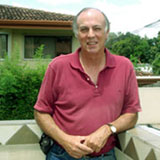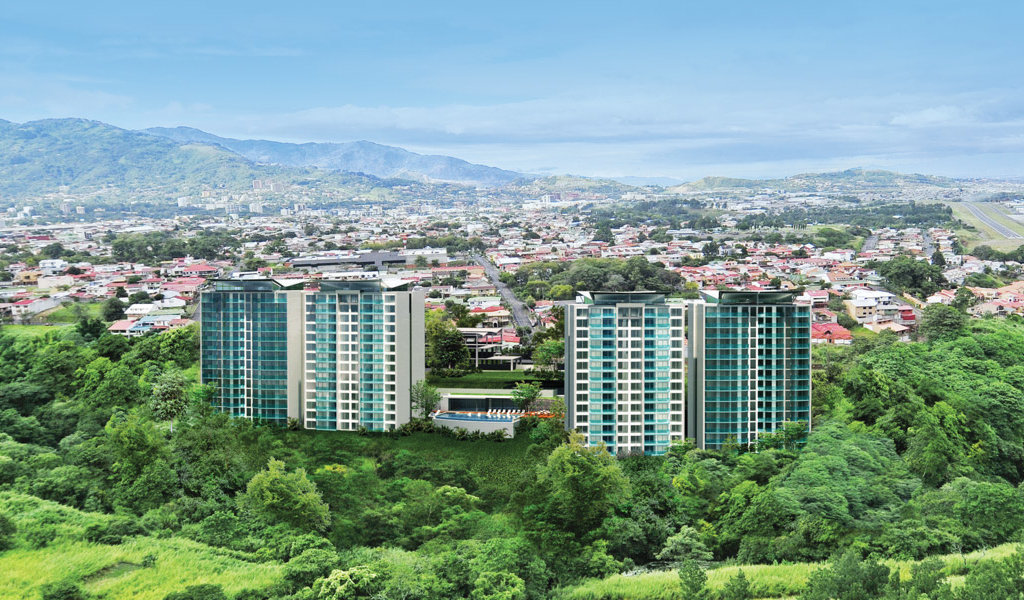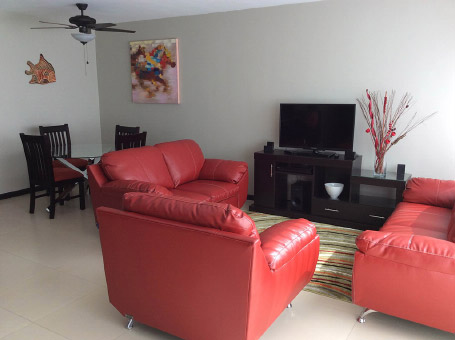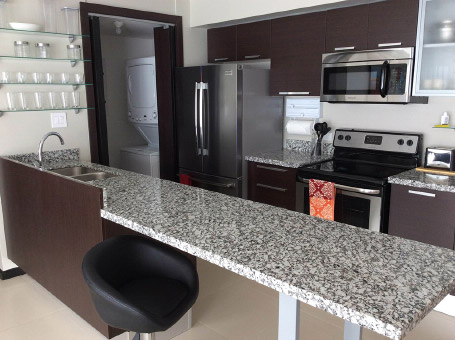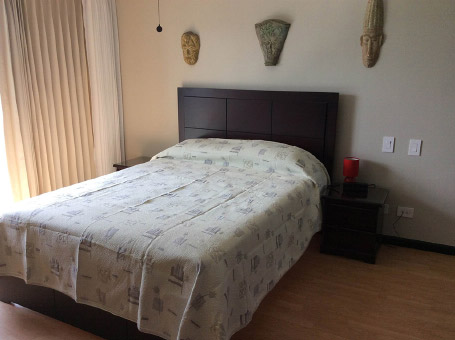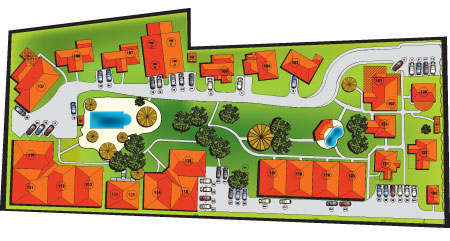Comments
1. CR Unemployment: over 2Xs that of the US and as usual, the rate for women is higher than for men. What is a bit different (to me) is that there is about the same unemployment rate in the rural as in the urban areas. What is really uusual (to me but not surprising) is the percentage of the "informal job market".
2. The "minegate: fiasco. A company thought it had played by the rules and had correctly obtanined all the necessary permits. It seems that the rules changed with a new administration, the permsion which had been granted was withdrawn, the company lost lots of money... now someone is till trying to find a donkey to pin the tail to.
3.Uber: I thought it was legal... now it seems to not be... it is hard to keep up with this twisted story. People I know who use it, love it over ALL options.
4. / 5: "Cementgate" at least two are going to jail, temporarily... but I bet they are out in a week.
1. Unemployment rate stagnates at 9 percent
By the A.M. Costa Rica staff
A comparison of unemployment rates for the third quarters of 2016 and 2017 indicated that there was no statistically significant variation the rate, which remains at 9.4%.
These results are part of the latest Continuous Employment Survey for the third quarter of 2017, carried out by the National Institute of Statistics and Census (INEC).
The term “unemployed” refers to someone who did not work at the time of the consultation but wished to work and looked for work in the last 4 weeks.
The survey estimated that 106,000 men and 107,000 women were unemployed. Although in absolute terms the difference is minimal, there is a greater impact on the female population given that they have a lower rate of overall employment, which is reflected in their unemployment rate of 12.4%, while that of men is of 7.5%, without inter-annual statistical variation.
By area of residence, 162,000 unemployed people lived in the urban area and 52,000 unemployed people in the rural area, with an urban unemployment rate of 9.5% and rural unemployment rate of 9%.
The percentage of people underemployed (working less than 40 hours per week) who are available and want to work more than what their current jobs allow them is around 8.9%. In that category, the underemployment of men was 7% and for women it was 12.2%. In both cases it remains without significant changes with respect to the same period of the previous year.
The independent working population was 469,000 people, which translates into an increase of 44,000 in that condition.
The independent working population is primarily women and people living in both areas. On the other hand, more than 1.56 million people are salaried, representing about 75% of the total employed population.
The informal employment rate was 43.2% meaning that the population with informal employment was about 893,000 people, out of which 547,000 were men and 346, 000 were women. For women, the informal employment rate was 45.4% and for men 41.9%.
Of the employed population, 471 thousand dependents (people who worked for an employer, company or institution) had an informal job, which represents 29.5% of the total number of dependents. On the other hand, 422 thousand independent employed persons (those who work on their own, have a company or hire employees) had an informal job.
The population in the labor force is estimated at 2.28 million people, out of which 1.41 million are men and 870,000 are women. About 59,000 more men were employed this year over the previous year.
The employed population increases from one year to the next due mainly to the employment of men.
The total of employed men is 1.30 million, 59,000 more than the previous year. The female population is 762,000 women without significant inter-annual changes.
According to the Inec, there are seasonal activities that cause an increase in the employed population, but it does not affect the unemployment figure.
2. Former president Arias to be questioned about the failed Crucitas Mining project in San Carlos
By A.M. Costa Rica staff
On Monday, the interim general prosecutor, Emilia Navas, ordered the reopening of the investigation against the former president of the Republic Óscar Arias Sánchez for the alleged crime of prevarication in the case known as Crucitas.
The case is related to the failed open mining project in Cutris de San Carlos, in Alajuela.
The former president is mentioned under file 12-000124-0621-PE, for having signed, in 2008, a decree of public interest so that the company Industrias Infinito could perform mining in the area mentioned. The date of the subpoena to the ex-president has not been disclosed yet.
"The cause, known to the media as Crucitas, was in the Criminal Court of the Treasury with a dismissal since 2014, a decision based on the lack of evidence, but after the recent legal analysis of the case, it was determined that it was necessary to examine into the search for new evidence that, at the time, was not included in the investigation file,” said the Attorney General's Office in a press release.
Arias could be charged with the “prevaricate felony”, which is a crime that occurs when a judicial or administrative officer issues resolutions contrary to the law. This offense is punishable by up to six years in prison.
The prosecutor Navas reported that on the day the case was reopened, she summoned former President Arias for questioning.
The day and time of the hearing, as well as other details of the case, will not be made public in accordance with article 295 of the Criminal Procedure Code.
That article requires the Public Ministry to guarantee the privacy of the proceedings during the collection and analysis of evidence in the criminal process, explained the prosecutor.
The document signed by Arias in 2008 was also signed by the former Minister of Environment and Energy, Roberto Dobles, who had been sentenced by the Tribunal Penal de Hacienda for malfeasance.
However, in September, the Criminal Court of Goicoechea returned the case of Crucitas to a prior stage of the investigation, to determine whether the former president had to face judicial investigation.
3. First Uber driver fined must pay about $4,000
By the A.M. Costa Rica staff
The Public Services Regulatory Authority (ARESEP) imposed a penalty of ¢2,017,000 on a UBER driver for the illegal provision of public service, according to by resolution RRG-449-2017.
According to the preliminary research carried out by ARESEP, Uber is more than a technological platform because it creates a paid transport offer and facilitates the provision of a service. Both the owner and the driver are responsible for this illegal behavior.
To provide a public transportation service, drivers must have a concession or permission from the state, which is granted by the Council of Public Transportation (CTP).
Failure to comply with the regulation makes the driver and the owner of the vehicle subject to penalties.
In the aforementioned case, a preliminary investigation was carried out and Uber was informed that the current legal framework must be respected.
The results of the investigation were sent to other institutions: the Costa Rican Social Security Fund, the Ministry of Labor, the Ministry of Transportation, the National Insurance Institute, the Ministry of Economy and the Ministry of Foreign Trade.
The investigation was carried out as a result of the cases of possible illegal transportation referred to the Traffic Police.
The Regulator, Roberto Jiménez, explained that "the ARESEP has carried out all the actions, which the law allows, against illegal transportation."
As of now, 30 Uber drivers have open procedures before the Public Services Regulatory Authority (ARESEP).
The director of the Customer Service Department, Marta Monge, explained that four of the cases date back before August, while the others occurred in September after an intensification of the Traffic Police operations.
Drivers are exposed to a fine ranging from five to 20 base salaries, that means it can be from ¢2,017,000 to ¢8,068,000.
Monge indicated that the procedure begins with detection by Transit police of a possible illegal activity. The officer sends the information to ARESEP and makes the vehicle available for inspection.
After one month, the car is returned to the owner and an ordinary sanction procedure is initiated.
During this process, a hearing is held where the driver can present his arguments and evidence. Finally, a resolution is issued and communicated to the parties involved. In the same ruling, the economic penalty is established and the respective collection procedures are carried out.
In the event that the driver fails to comply with the measure, ARESEP may bring the matter before the courts and enforce the fine.
The sanctioned party may exhaust the initial channels and appeal directly to the Administrative Dispute Court.
The whole procedure may take up to one year.
4. Police arrest two key figures in Chinese cement case
The Costa Rican Prosecutor’s Office announced that it arrested “Chinese cement importer by the last name of Bolaños” just before 4 am Friday morning as he was driving his car in Atenas, Alajuela.
Juan Carlos Bolaños is the man at the center of the Chinese cement case, or Cementazo as it is popularly known, that has been unfolding in a Legislative Assembly investigative committee for months. Figures from all three branches of government and various political parties have been accused of using their position to advance Bolaños’ business interests.
The statement from the Judicial Branch announcing the arrest also indicated that former Banco de Costa Rica manager Mario Barrenechea was arrested at his home in Santa Ana.
Homes belonging to both men – Bolaños’ in Escazú and Atenas, and Barrenchea’s in Santa Ana – are being searched for “evidence that could allow the investigation of the case to move forward,” the statement said.
5. Prosecutors requests six months of prison for seven cement case detainees
The Costa Rican Prosecutor’s Office requested six months of preventive detention for the seven people who have now been arrested in connection with the Banco de Costa Rica-Chinese cement case popularly known as the Cementazo.
The request, confirmed by the Prosecutor’s Office Saturday morning – the office indicated on Twitter that the hearing had been in progress since 1 am – followed the arrest on Friday of businessman Juan Carlos Bolaños and six senior executives from the Banco de Costa Rica, one of Costa Rica’s public banks.
Bolaños is the key figure in the unfolding scandal, which centers on alleged influence peddling involving officials in the executive, judicial and legislative branches of government so Bolaños could obtain $30 million in loans from bank to import Chinese cement.
His arrest took place in Atenas, Alajuela at approximately 3:30 am Friday morning. The daily La Nación reported that authorities began following him Thursday evening with the intent to arrest him at 6 am at his home in Escazú, but moved up the arrest because of “movements that caught our attention” as the businessman visited various locations around San José during that night and into the wee hours of the morning.
When Bolaños stopped at the offices of Grupo JCB in La Uruca and loaded boxes into his car, authorities decided to take him into custody earlier than planned, the daily reported.
Hours later, six Banco de Costa Rica executives – including its suspended manager, Mario Barrenechea – were arrested.
The last names of the additional five bank executives arrested later Friday, according to statement from the Prosecutors Office, are Corrales Barboza, Víquez Lizano and Acuña Alvarado, Ramírez Rodríguez and Barrantes Campos.
Investigators are examining alleged irregularities in the bank’s unsecured loans to Bolaños.
Costa Rica’s Chief Prosecutor, Emilia Navas, said at a news conference that several other suspects are being investigated, suggesting the possibility of further arrests.
Members of the government are said to be implicated in the probe. The Economy Ministry modified its rules on cement imports following seven meetings Bolaños had with representatives of the Executive Branch.
Asked whether President Luis Guillermo Solís was among those being investigated, Navas declined to answer.
Solís, who has been recovering from prostate surgery, posted a video on Facebook on Friday expressing his support for the ongoing investigation.
“I share the indignation of the citizenry” over the case, he said. “The people of Costa Rica deserve to know the whole truth.”
